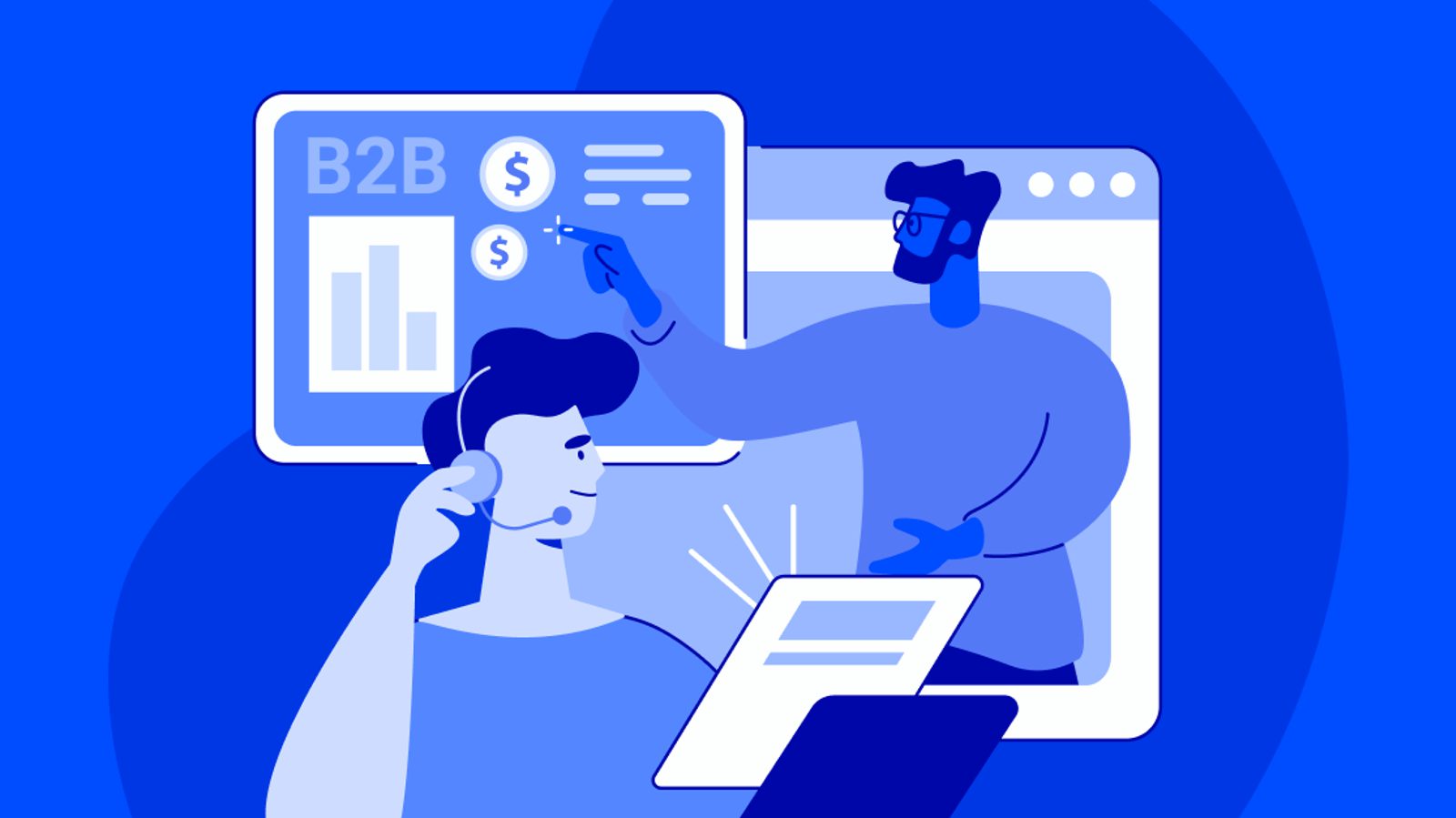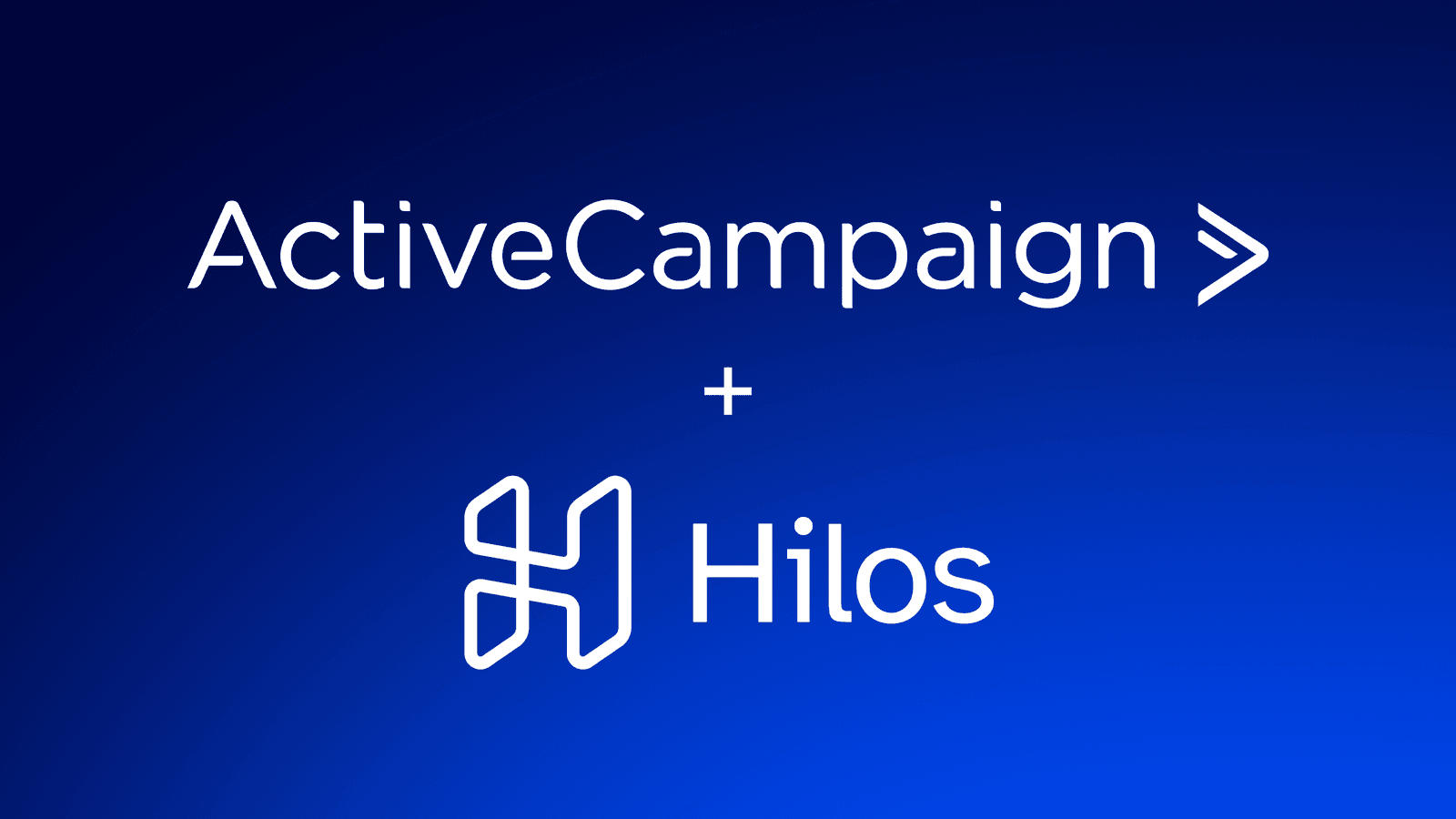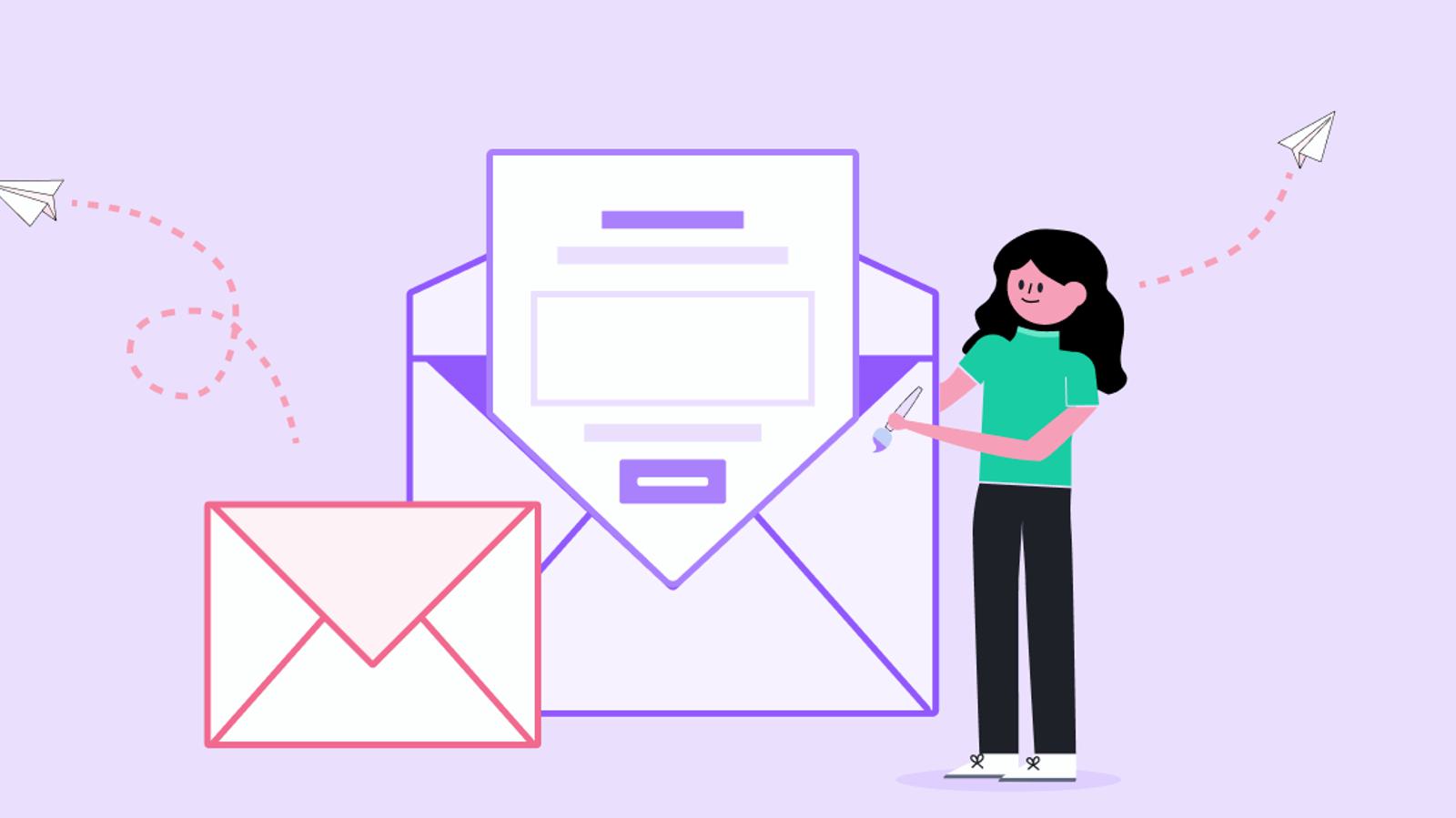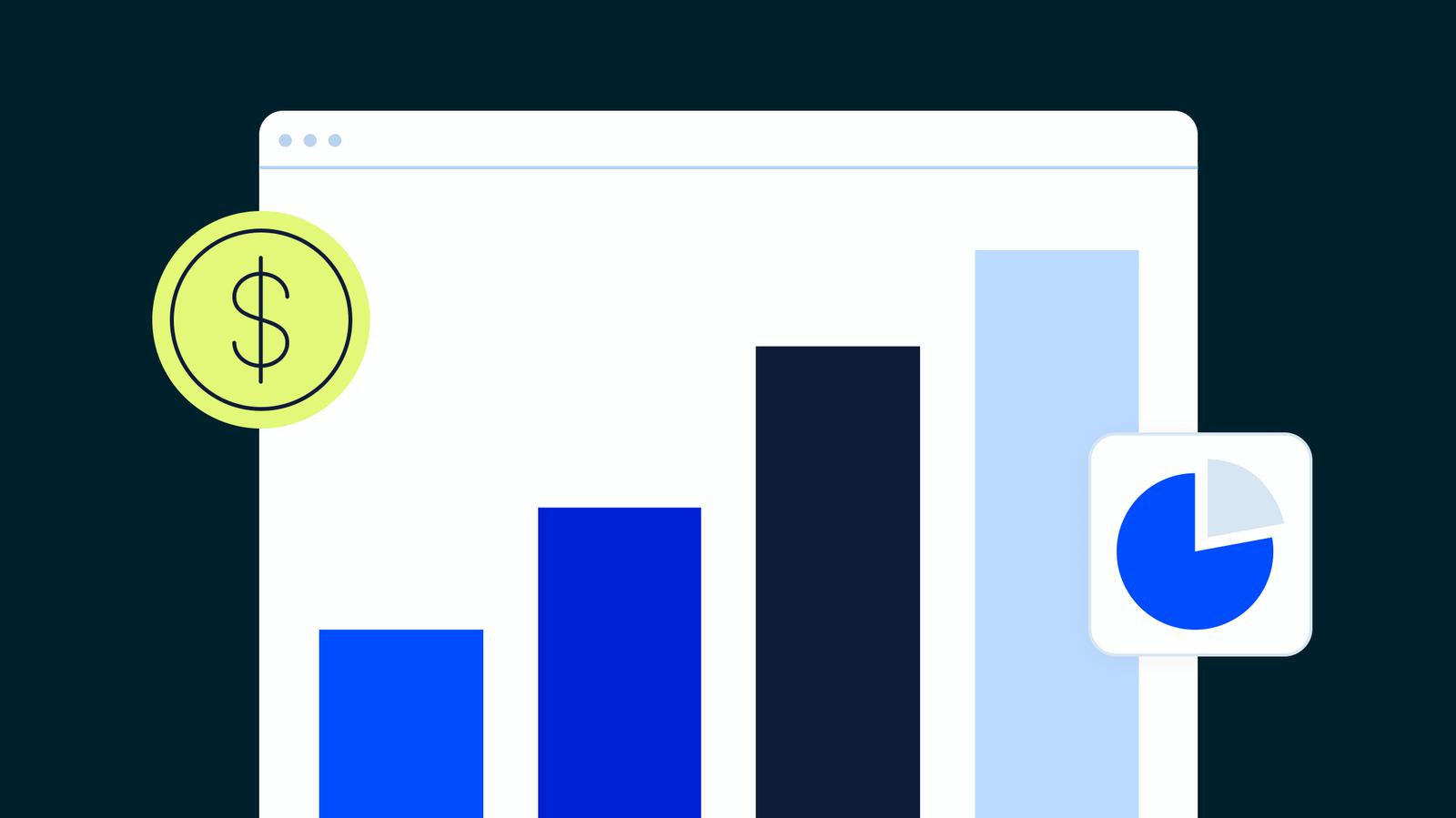B2B sales aren't easy. The competition is fierce, the market and customer demands are ever-changing, and customers are becoming less likely to respond to a salesperson, preferring to conduct research and make decisions independently.
Are you looking to understand more about what B2B sales entail? Do you hope to gain a deeper insight into the processes involved? We explore sales tactics and best practices to drive awareness and gain more leads. We examine the strategies to boost your sales and provide tips to position your business as a market leader in B2B sales.
In this article, we'll break down the key differences between B2B and B2C sales, typical B2B sales journeys, and how these have changed over time. We'll also discuss the best B2B sales techniques, reveal some valuable strategies, and consider what the future holds for B2B sales.
Table of Contents
What is B2B sales?
Business-to-Business (B2B) sales occur between 2 businesses rather than the business and an individual customer (which is known as B2C sales). B2B sales differ significantly from B2C sales. The sales are likely to be for larger amounts and may need to be approved by multiple stakeholders before the sale is agreed upon. This means businesses making B2B sales need to consider their approach very differently, from initial marketing campaigns to closing the deal.
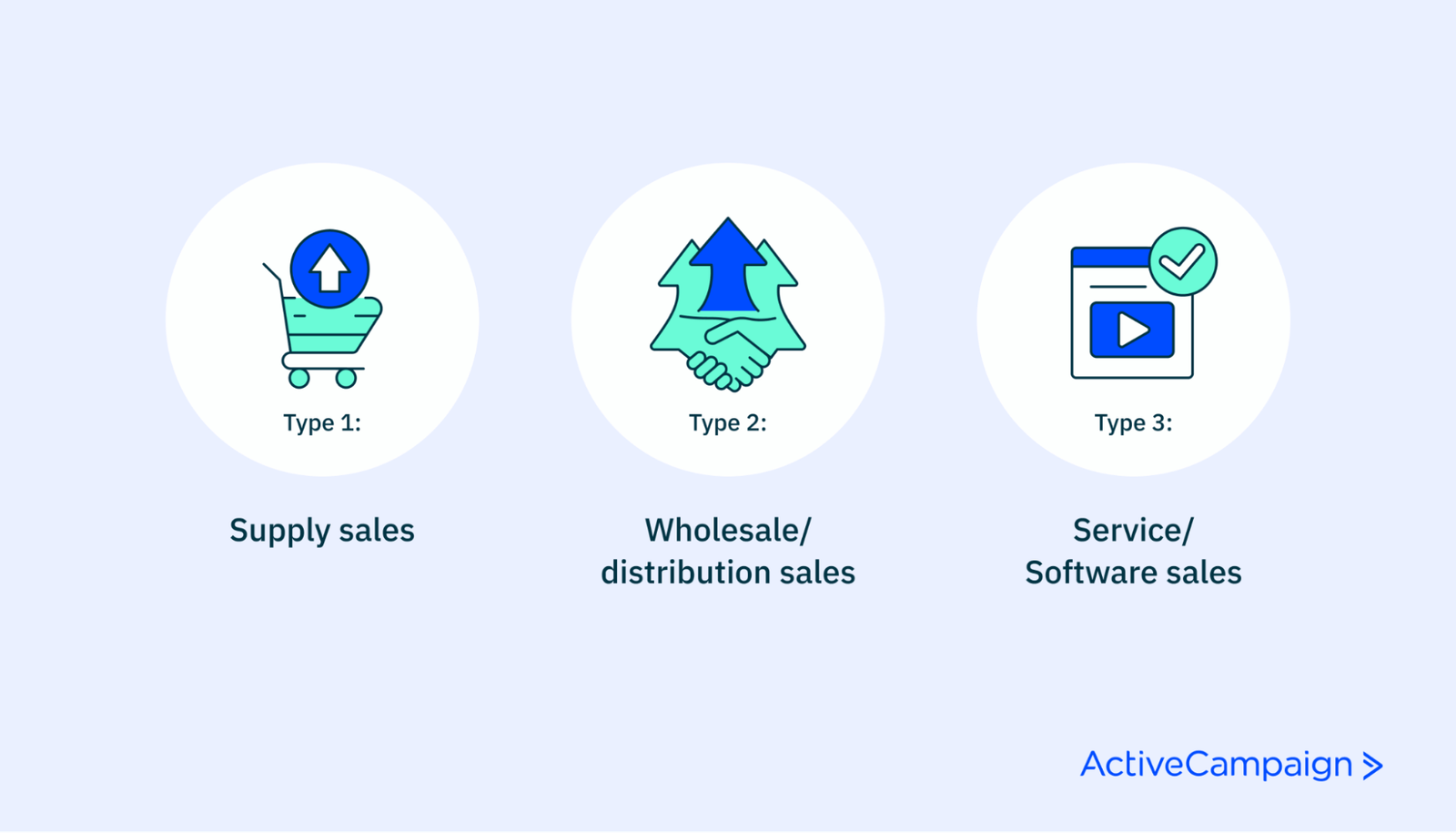
Some different types of B2B sales include:
Type 1: Supply sales. B2B supply sales occur when 1 business provides goods or services that another needs. This could be anything from stationary for offices to coffee for a cafe.
Type 2: Wholesale or distribution sales. This type of B2B selling is where 1 business supplies its products to another, who go on to sell these goods to the customer. For example, food wholesalers supplying to supermarkets or clothes manufacturers selling to retail shops.
Type 3: Service or software sales. Selling services rather than consumable goods is another option for B2B sales. Software companies sell their software to businesses as a one-time or ongoing subscription.
The difference between B2B and B2C Sales (and why it matters)
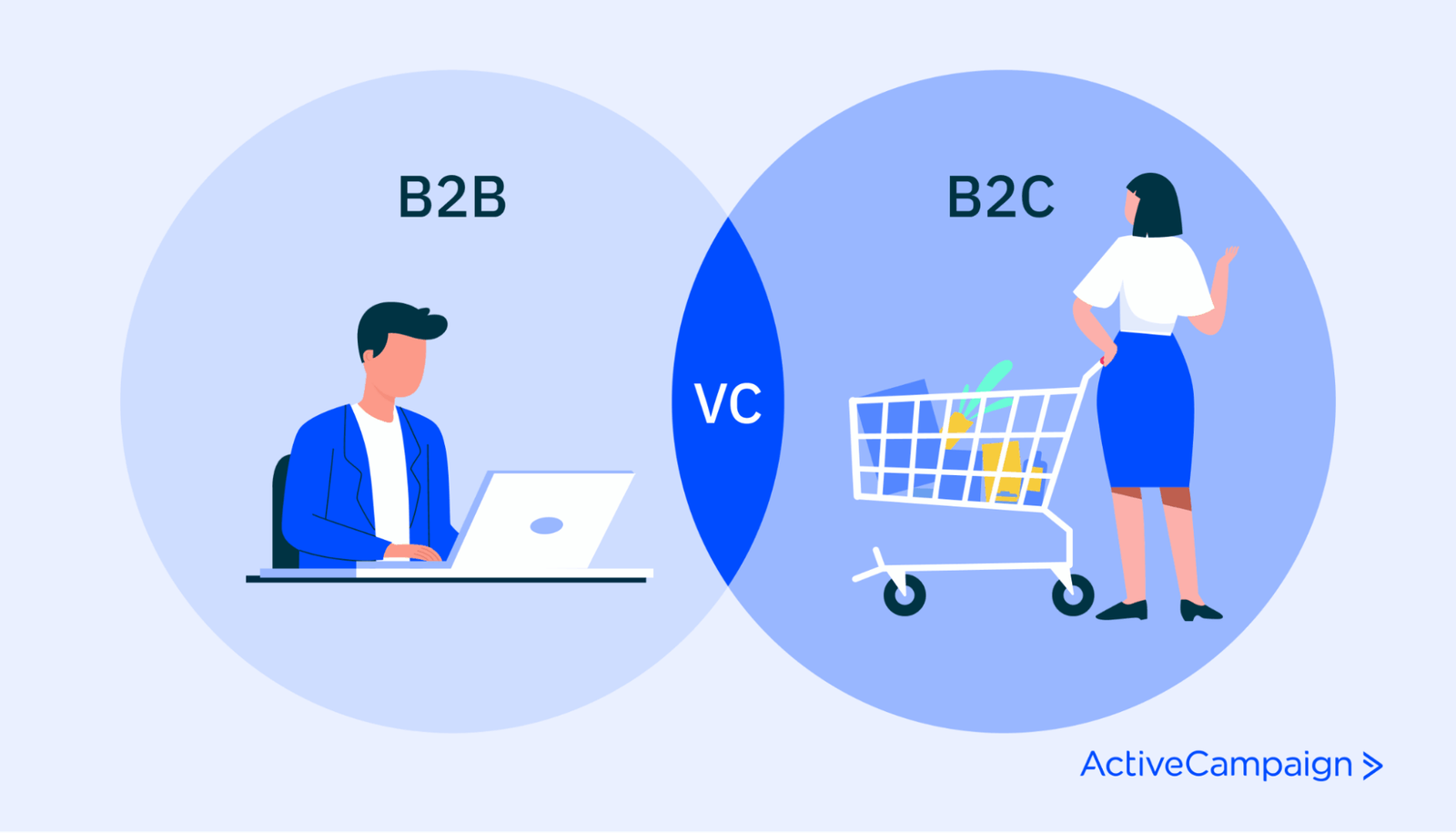
- Higher average transaction value. Generally, a sale between 2 businesses is likely to have a higher transaction value than between a company and an individual.
- Different product offerings. B2C sales can solve a problem in an individual's life, from not having time to cook healthy meals to not having the right outfit for a wedding. B2B sales solve a problem for a business, such as having better cybersecurity, implementing a reliable VPN or helping employees become more efficient at their jobs.
- Longer sales cycles. With a B2C client, the individual makes the final purchasing decision. With a B2B client, several layers of sign-off may exist before you close the deal. This means your sales funnel needs to consider the multiple stakeholders or decision-makers and what potential barriers or concerns could come up at each point.
- Less emotion-driven buying. Businesses tend to buy goods and services that are practical, efficient, and useful. They'll consider cost-efficiency and will explore competitors' offerings. Individuals are more susceptible to emotional buying and can be influenced this way, whereas B2B sales require a more benefit-driven approach.
- Highly educated buyers. Selling to a business means dealing with educated and informed buyers who may already operate within your industry and have a solid level of knowledge, prior experience, and even expertise in the product you’re selling. This means businesses will need to change their marketing content to match the knowledge level of their target market.
What is the B2B sales process?
The B2B sales process consists of 6 stages.
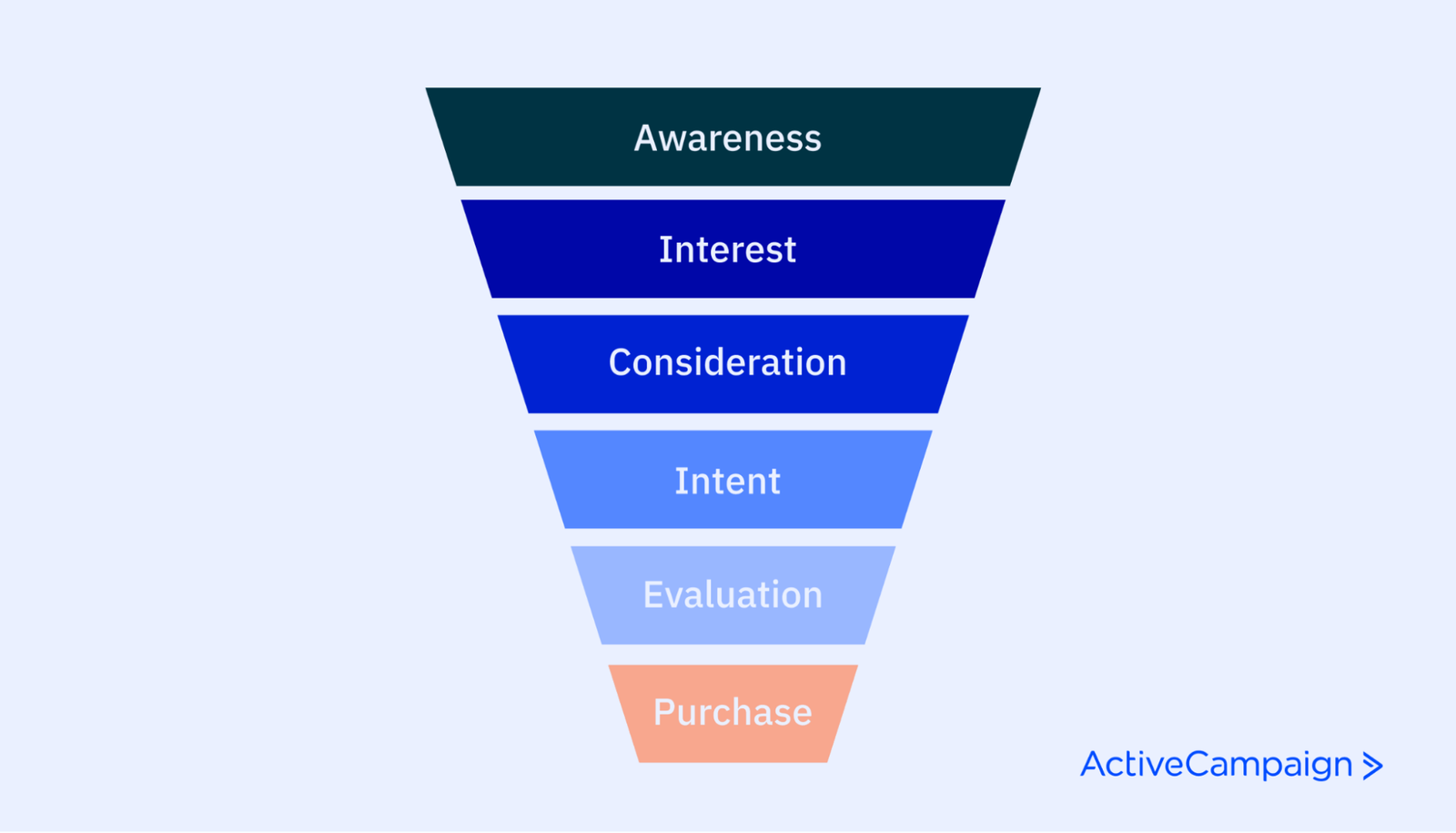
The B2B sales process is a set of steps that represent the archetypal buyer journey. Businesses wishing to sell their products successfully must consider these steps in their sales and marketing strategies. They must create a sales funnel to guide buyers toward making a purchase.
What is a B2B sales funnel?
The 6 steps in the B2B sales funnel are:
1. Awareness. The business becomes aware of its need for the product. This may happen naturally, or the realization could come about from your marketing efforts. Through content marketing and SEO, you can position your business to become more visible to prospects, searching for specific keywords or researching related topics.
2. Interest. The prospect is interested in the broad product offering and wants to learn more about it. They’ll rely heavily on research to find answers to their questions. At this stage, they may not look for specifics but instead gather a general overview, becoming more informed about the problem and the potential solutions.
3. Consideration. The business will consider all its options from the information and resources accumulated. At this stage, they will look at your competitors and evaluate who offers the ideal product that meets their needs and is the best fit for their requirements. This is an opportunity to build a relationship with the prospect, demonstrating you care about their problems and are best positioned to solve them.
4. Intent. The prospect makes their intentions known. At this stage, the business will have a purpose to act and could move to buy the product. However, this doesn't mean it's a done deal. Many buyers can drop off at this stage, so it's crucial to make sure you have the right B2B marketing strategies in place to give them a final push.
5. Evaluation. Before the final sales transaction, a potential buyer will usually take time to evaluate everything they have learned about your product and your business. This is a period of reflection, reviewing all the benefits and checking that all the boxes are ticked.
6. Purchase. Finally, the transaction takes place, and the sale is made. This is the most straightforward part of the funnel, as it is the culmination of all previous steps that make closing possible.
How have B2B sales changed?
B2B sales used to be a lot easier. Now decision makers increasingly prefer digital interactions over face-to-face interactions. This translates to a greater demand for hassle-free access to relevant, informative content.
Businesses demand content that exemplifies excellent industry knowledge, is transparent regarding pricing structures, and even proactively reveals competitor information. They also insist that search and navigation tools are logical and straightforward.
Greater insight into what buyers are looking for means sales operatives have an opportunity to hone in on creating a seamless buyer journey while simultaneously delighting their customers.
B2B sales are also facing new challenges.
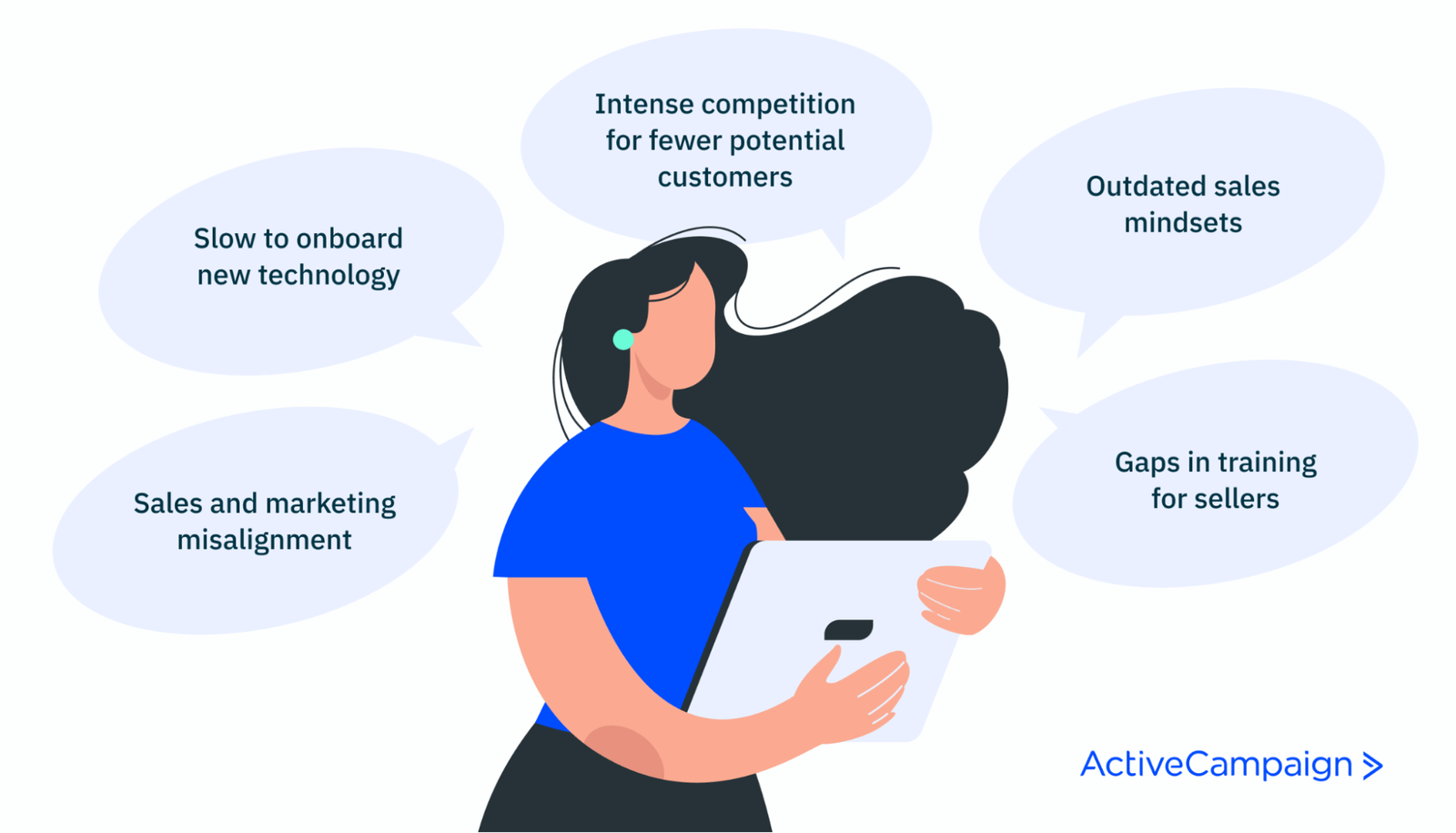
Huge competition for a smaller market. Since the COVID-19 pandemic, businesses are more likely to be looking at where they can cut down on spending. The competition between companies with similar offerings has become fiercer than ever. Fostering customer loyalty, brand recognition, and positioning your business as a trusted market leader is imperative.
Slow to onboard new technology. Advances in technology have created a gap between B2B businesses. Those who are slow to embrace and onboard new technology are at a disadvantage.
Gaps in sales training. B2B businesses need to invest in their sales teams to guarantee that they have excellent product and industry knowledge and deep insight into what potential prospects are searching for. Often there are gaps in sales training, which means sales representatives lack understanding of the capabilities or technology of the product or what the customer needs and thus fail to impress.
Extended buying cycles. A process and strategy to move leads through the sales funnel is imperative. With multiple people involved in the buying process, you may have to create a more flexible sales funnel—one with the ability to adapt to different needs and objections from the organization and nurture each decision influencer to make sure everyone is on board.
There's also a new kind of B2B buyer emerging—one that's suspicious of marketing messaging and more likely to search for and rely upon trusted peer recommendations.
Contemporary B2B buyers are more risk-averse and self-reliant, preferring to conduct their research online before purchasing. This means your online content is more important than ever, as 80% of buyers indicate that a vendor's content could influence whether they make a move to buy.
Get The Most From B2B Sales
What are the best B2B sales techniques?
Are you looking to improve your B2B sales? Try these techniques and tips.
Techniques:
- Solution selling is a customer-centric approach; highlight pain points and demonstrate how your product will alleviate these.
- The Challenger Sale is a methodology focusing on a sales rep's ability to take charge of a sale and tailor communication specifically for that prospect.
- Account-based sales create a set of target accounts and develop personalized campaigns to target each one.
- Value selling focuses on the benefits the product or service will bring the buyer, highlighting the value it provides at every opportunity.
- The Sandler selling system is a model where sales reps take on more of a consultant role, asking thoughtful, relevant questions and becoming informative and trusted guides instead of traditional pushy salespeople.
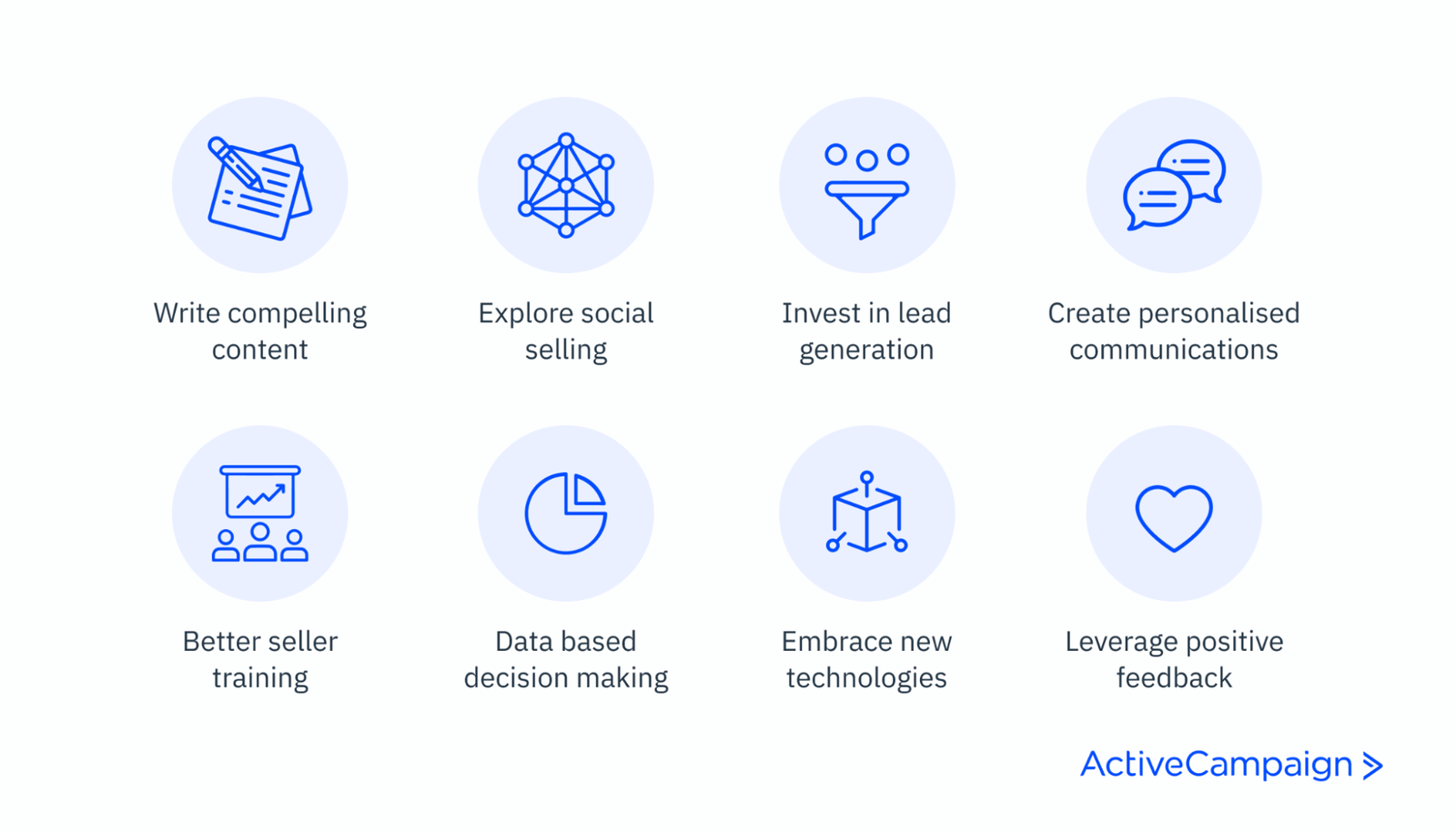
Tips:
- Ensure your salespeople are highly trained and brand positive; they should be the spokespeople for your brand and able to engage professionals and position themselves as experts on your offering.
- Make sure sales and marketing teams are communicating effectively and are clear on the overarching goals.
- Capture hearts and minds with compelling content. Drive more sales with storytelling and compelling content across all platforms, from social media messaging to high-converting landing pages.
- Use social selling to convert cold leads into loyal customers who rave about your business.
- Generate new leads by implementing a seamless buyer journey. Create targeted business contacts lists, and make sure your company is listed on relevant directories. Joining social media groups and gathering reviews can also be rich sources for leads.
- Embrace personalization. Make use of modern technology to enable you to personalize at scale.
- Value your customers and show them you care. Cultivate strong relationships through asking the right questions and actively listening. Adopt an omnichannel marketing approach to widen your reach.
- Invest more in ABM campaigns.
- Keep abreast of and embrace new technologies. Gather data and analytics and use these insights to inform decisions.
- Use positive customer feedback to gain trust and build your reputation.
What are B2B best practices?
Some B2B best practices include:
- Prioritizing your customer's needs, wants, and values.
- Gaining a deep understanding of the customer experience.
- Tailoring your services to suit the unique needs of the buyer.
- Offering real-time interaction.
- Investing in customer experience training. The most effective sales performers are nearly 3 times more likely than those performing poorly to report that their onboarding experience was good or excellent.
- Gathering customer data and using these insights to inform your sales and marketing strategies.
- Taking advantage of Social Selling. 63% of consumers said posts by brands or companies were very influential.
- Focusing on achieving a consistent approach.
Frequently asked questions
How do you fill your B2B sales funnel?
Filling your sales funnel is about creating enough quality leads and then leading these potential customers through each step of the sales funnel, providing them with the correct information at precisely the right time. Doing so will impress them, showcase your offering, preemptively answer questions, remove doubts, and position your business as the best provider to solve their particular problem.
How do you close a B2B sale?
Closing a B2B sale is about eliminating objections, demonstrating your product, using reviews to build trust, and offering a get-out clause. Provide the correct information and show how easy and effective your product is. Do this while highlighting the feedback from your existing happy customers and providing something like a hassle-free returns policy, and you should be able to close the deal confidently.
How important are sales representatives in B2B sales?
Self-serve and online research is increasing. However, sales reps still play a critical role. One study indicated a strong relationship between the performance of sales reps and revenue growth. Top-performing sales representatives are more than twice as likely to be part of companies achieving significant revenue growth in the last fiscal year than those performing poorly. Incentivising and retaining great reps is crucial, as those who don't feel they receive sufficient training and ongoing support will go elsewhere.
What is the future of B2B sales?
B2B sales are transforming fast.
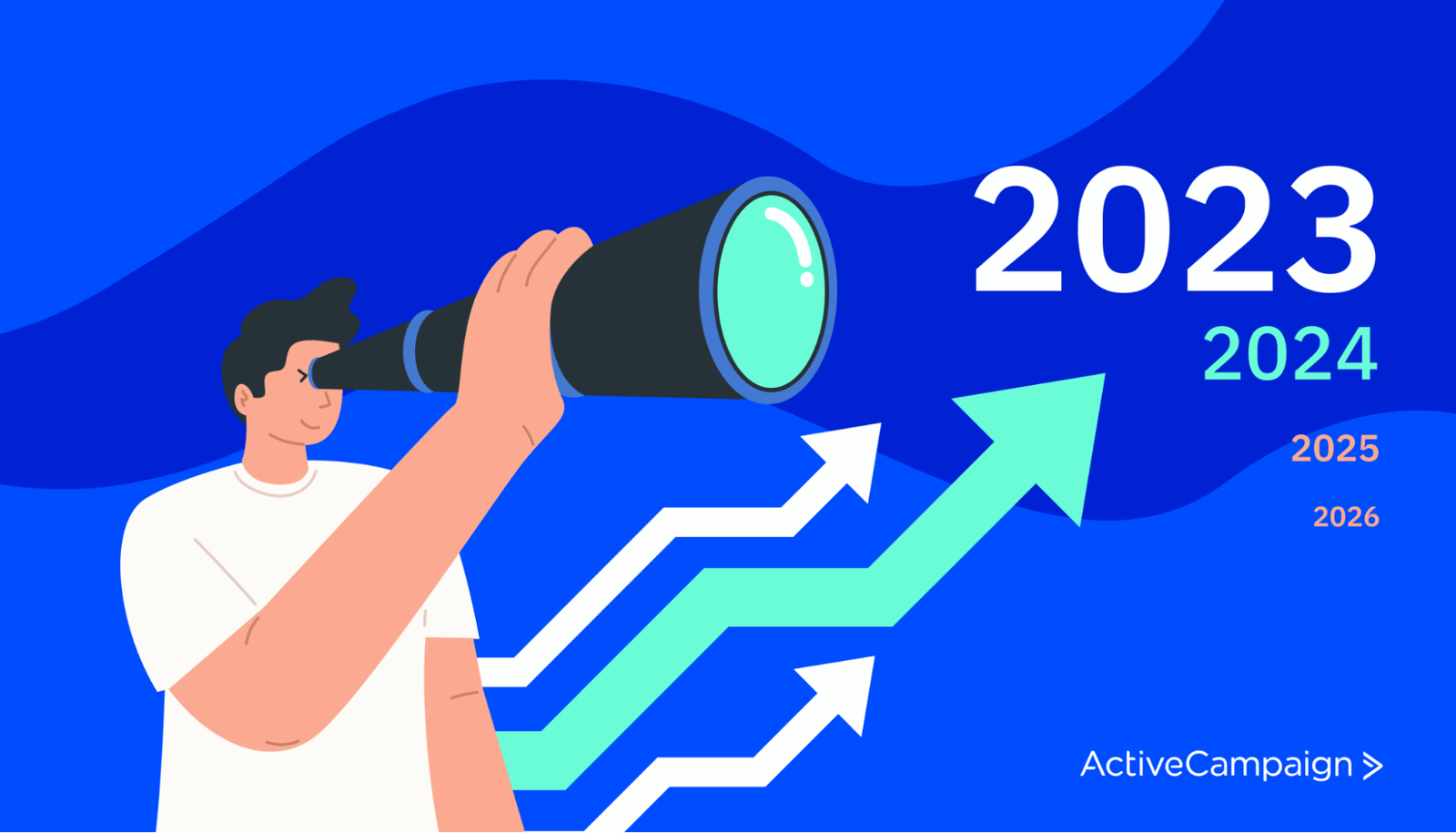
A focus on personalization and ensuring an exceptional customer experience is paramount to B2B sales success. As buyers continue to prefer self-serve, there’s also a shift toward improving online transactions and providing robust and helpful online content.
Recently introduced sales tools are becoming imperative if a business wants to keep up with its competitors, and embracing technological advances is necessary. Embracing AI and machine learning tools can enable sales teams to do their jobs better and boost customer engagement and business revenue.
Conclusion
B2B sales have changed and will continue to do so. Sitting back and waiting for leads to roll in isn't an option.
Instead, businesses must be proactive and strategic in their approach. They must seek out where their customers are active online and make sure that they share helpful, relevant content with them that highlights their pain points answers their questions, and addresses their needs.
Once interested, nurturing your relationships, adding value, and using content to move prospects further down the sales funnel will keep them focused on your offering and engaged with your brand, all the way to the checkout and beyond.
Doing this will build a robust reputation in your industry, create stronger relationships with your buyers, and prove yourself to be a reliable and trustworthy business that truly values its customers.
ActiveCampaign improves your customer experience and boosts sales revenue by delivering beautiful email campaigns. We'll enable you to automate big impact moments in your business, from win-back campaigns to review automation, which will free up your team's time to focus on other areas that will improve B2B sales. Start your free 14-day trial today.

